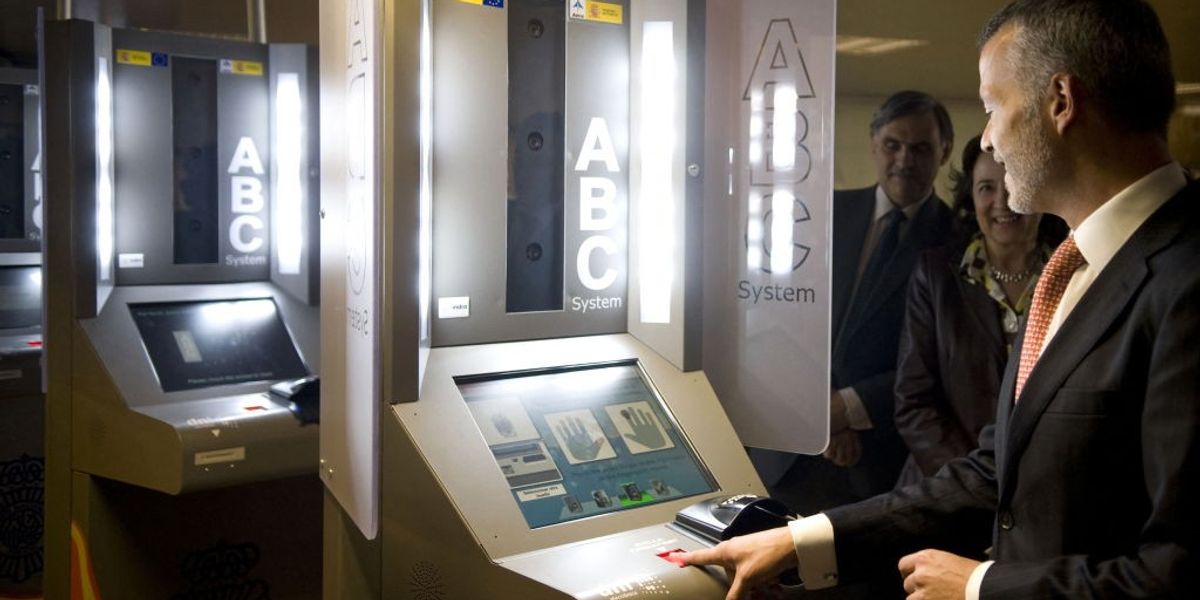UK Travellers Face Delays as New EU Border System Launches
As the travel industry gears up for a busy holiday season, UK travellers are bracing for potential chaos at European airports due to the implementation of a new border control system. Set to launch on November 10, the Entry/Exit System (EES) will introduce enhanced checks for non-EU travellers, including those from the UK, raising concerns about significant delays and long queues at entry points.
The New Border Control System
The EES, initially proposed in 2016, aims to streamline border checks by requiring non-EU travellers to provide biometric data upon entry into EU member states. This includes fingerprint scans and photographs, which will be stored in a centralised database for three years. While the intention behind the EES is to bolster security and improve the efficiency of border control, the practical implications for travellers could be severe.
Johan Lundgren, the chief executive of easyJet, has voiced his apprehensions regarding the potential for chaos at airports. He warned that in the worst-case scenario, passengers might find themselves unable to disembark from their flights due to overwhelming congestion at border control. "You hold people on the plane," he stated, highlighting the urgency of addressing these concerns.
Potential Congestion at Key Travel Hubs
With the EES set to roll out, industry leaders are particularly worried about congestion at major travel hubs, including EU airports, the Port of Dover, Eurotunnel’s Folkestone terminal, and London’s St Pancras railway station. The combination of increased processing times and the sheer volume of travellers could lead to significant delays, leaving holidaymakers frustrated and anxious.
Neil Swanson, the newly appointed UK and Ireland managing director for tour operator Tui, echoed these concerns, suggesting that the government must ensure holidaymakers are adequately prepared for the changes. "We will absolutely be looking after our customers, but I think the Government should be doing a bit more as well to make sure that everyone’s aware of what the situation is," he said.
Lack of Public Awareness
Despite the impending changes, there remains a notable lack of public awareness regarding the EES. Mark Tanzer, chief executive of Abta, expressed frustration over the situation, stating that the absence of a clear launch date has hindered effective communication with travellers. "Because we haven’t had a clear date for when this is going to commence, we haven’t really been able to start detailed communication yet," he explained.
This lack of information could lead to confusion and frustration among travellers, many of whom may be unaware of the new requirements until they arrive at the airport. As the launch date approaches, there is an urgent need for comprehensive information campaigns to educate the public about the changes.
Government and Industry Response
In response to the challenges posed by the EES, the UK Department for Transport has announced a £10.5 million investment in funding for UK ports with juxtaposed border checks. This funding aims to support the development of new facilities and technology to manage the requirements of the EES. However, industry leaders stress that more proactive measures are necessary to ensure a smooth transition for travellers.
As the travel industry prepares for the busy holiday season, the pressure is mounting on both the government and travel operators to launch comprehensive information campaigns. With the implementation date fast approaching, it is crucial that holidaymakers are informed about the new border control measures and what they can expect upon arrival in the EU.
Conclusion
The introduction of the Entry/Exit System represents a significant shift in the way border control is managed for non-EU travellers, including those from the UK. While the intentions behind the EES are rooted in enhancing security and efficiency, the potential for delays and congestion at airports raises serious concerns for travellers. As the launch date approaches, it is imperative that both the government and the travel industry take proactive steps to prepare holidaymakers for the changes ahead, ensuring a smoother travel experience during what is expected to be a busy season.
